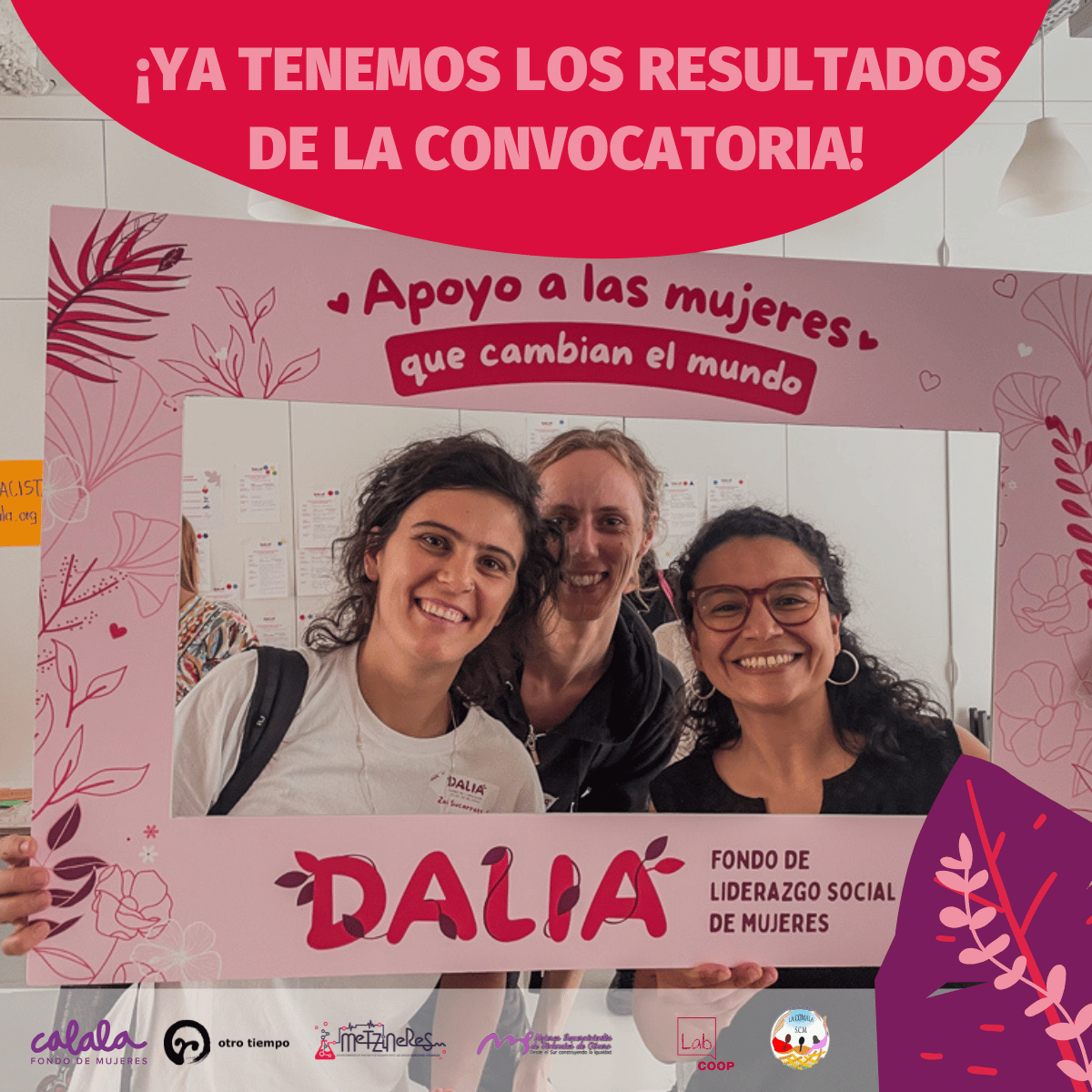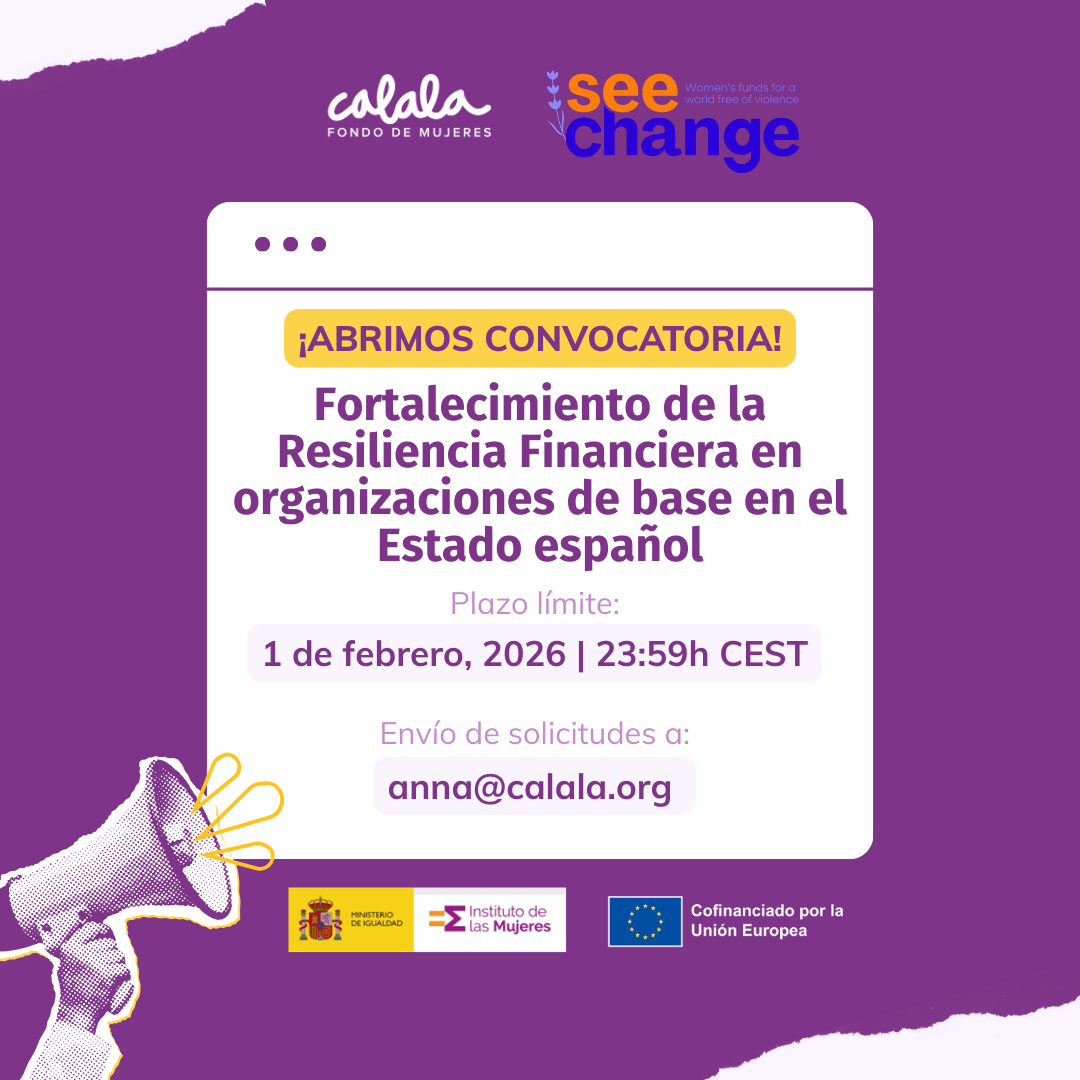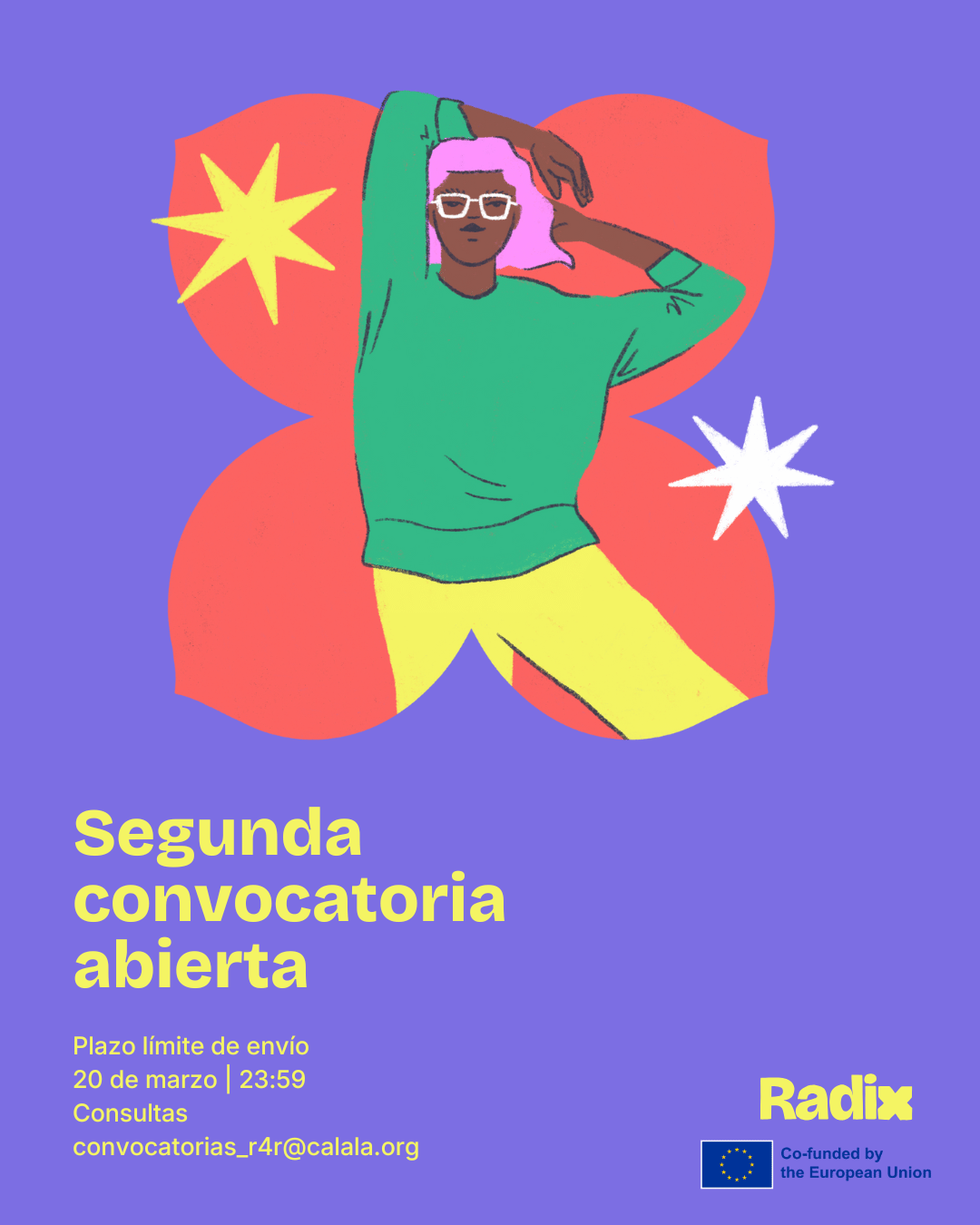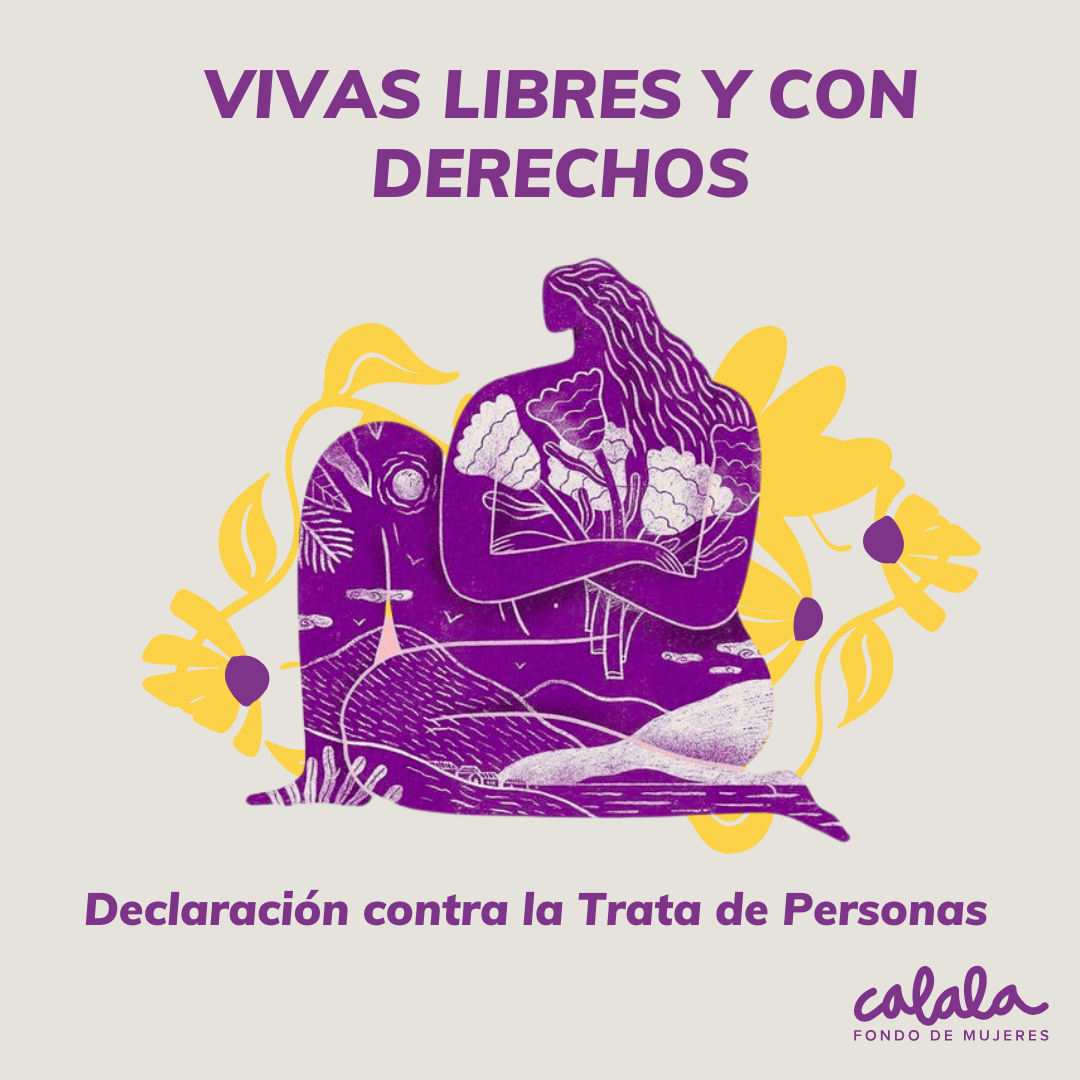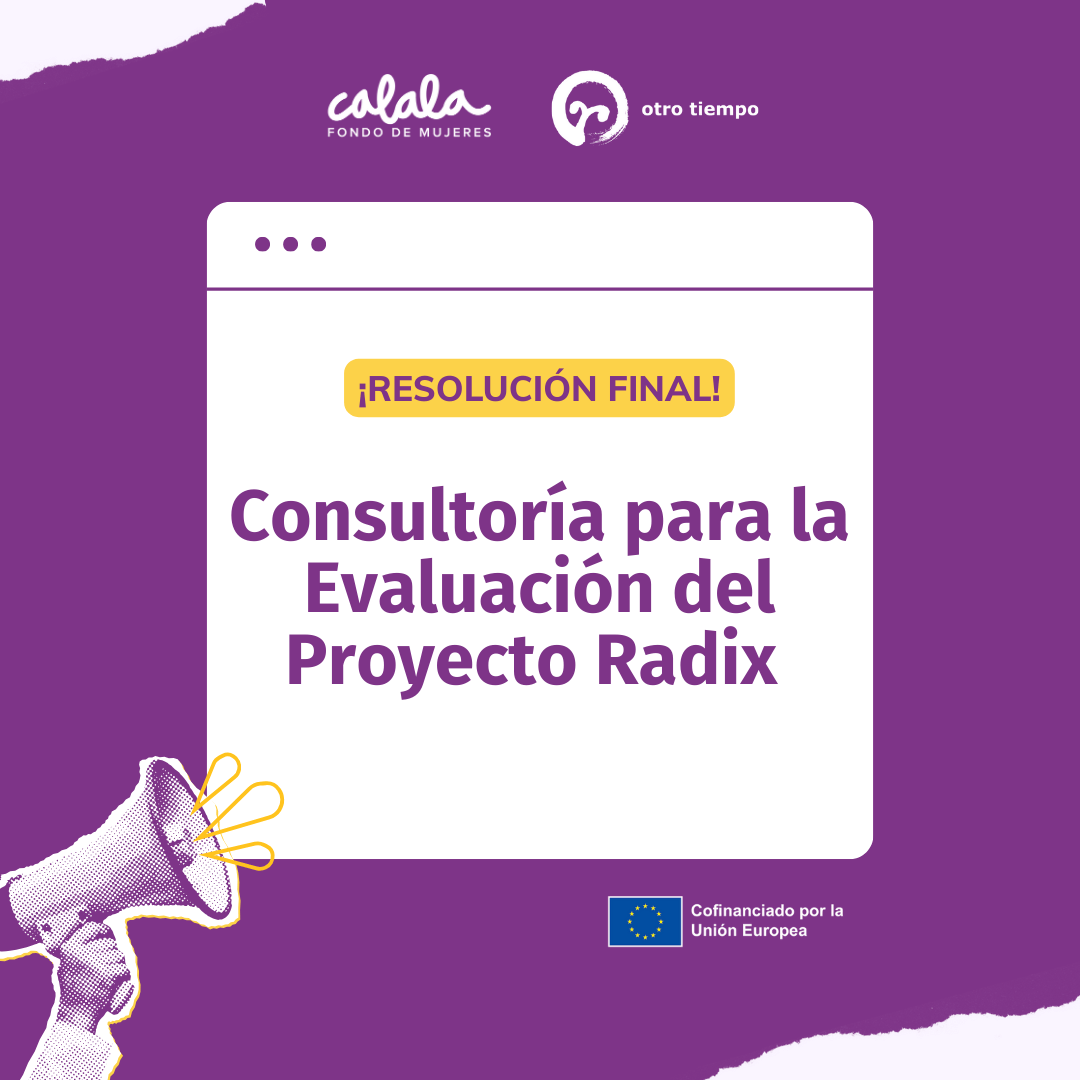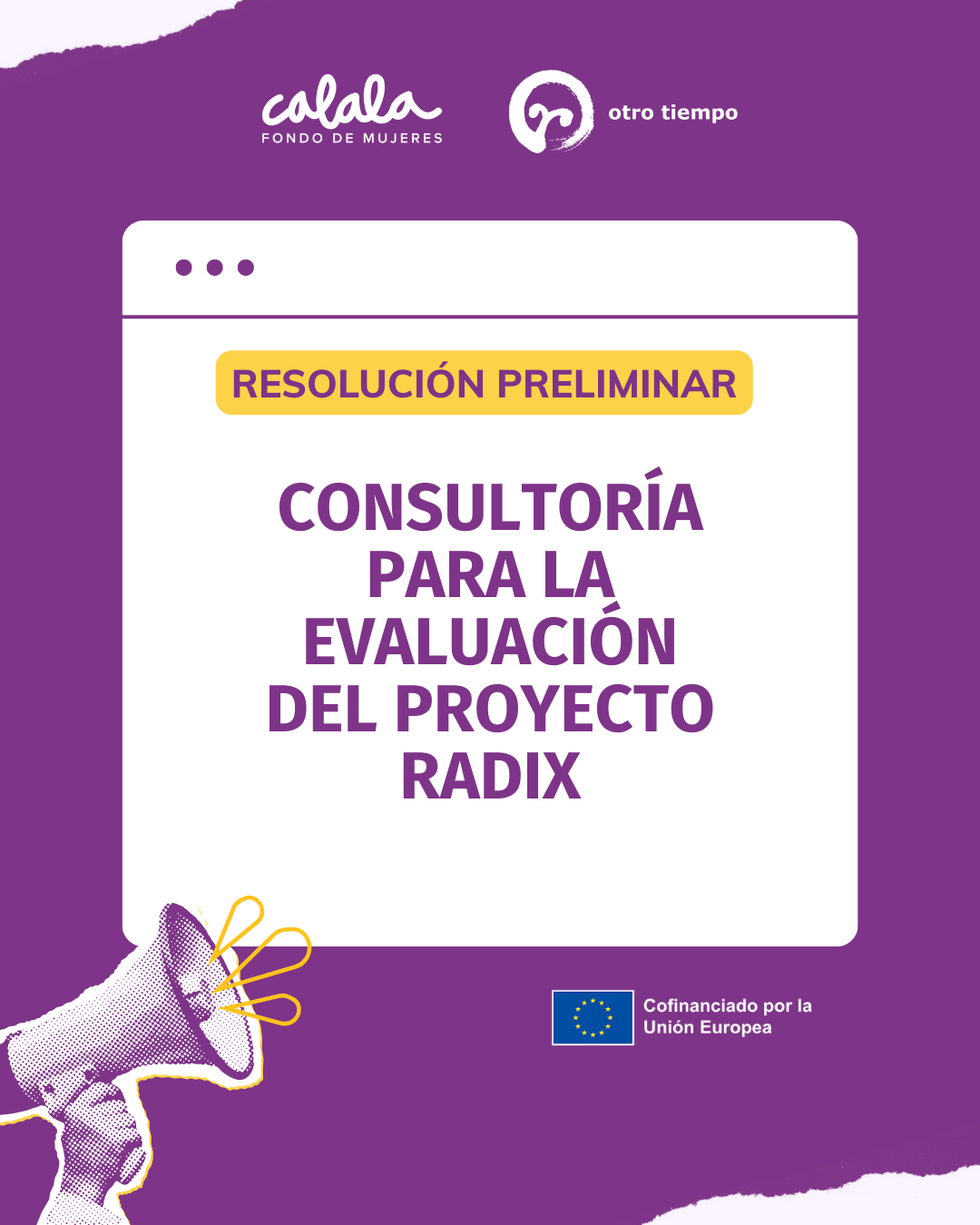By: Silvia Bueso
It is no surprise that the pandemic is leaving serious social and economic consequences that will take a long time to overcome, and that women's organisations and social projects are also being affected by this crisis.
The situation requires us to adapt to new financing formulas and to have a more proactive attitude in the search for these resources. An example of this is the Dalia Fund led by Calala, with which €80,000 has been awarded to social and solidarity economy projects led by women.
As a member of Calala's Board of Trustees, I was invited to contribute some of my knowledge and experience to the organisation about women's relationship with money and their empowerment in the search for resources to carry out their projects. And I could not say no to an organisation that is a benchmark in feminist philanthropy and is the only women's fund in Spain that finances women's groups that organise themselves and work for their rights and those of others.
Moving on, I would like to share with you some practical and motivating tips that may be useful:
Why is it important for women to learn to ask for what we need for our projects?
Women are great at giving. And what about your needs, your dreams, your ambitions? Where are they in this indefatigable capacity to give? The time has come to ask, to ask for whatever you want, to ask with conviction, without qualms, without complexes, without guilt. And it is much easier than you can imagine now.
The first step is to realise that asking is an act of generosity. Towards oneself and towards others. An act of respect in which both the one who asks and the one who gives are placed on an equal footing.
By asking, you open the door to commitment, to growth, to courage, to tenacity, to enthusiasm, to self-improvement, to learning, to dedication. By asking, you multiply generosity, because both your own and the other's generosity are amplified. There are many inspirational keys that will allow you to overcome challenges and blocks so that you can ask through that little mouth and raise funds for your cause or organisation.
Is it time to order?
My answer is: yes, it is always time to ask, Especially if you have given your all for your community, for the people you support or accompany, if you have helped and listened to others, of course, it's time to ask for funds. If you have helped and listened to others, of course, it's time to ask for funds - if you care, you are cared for!
Why diversify sources of income?
In these turbulent and changing times, diversification of income sources is essential for the survival of your organisation. In this sense, it is advisable to apply for public subsidies, and combine it with private fundraising and the sale of products and services, among others. Diversifying will help you stay afloat and above all give you more financial muscle to keep your purpose and raison d'être alive..
How do we learn to ask?
Here is the real work, I can share with you some essential steps to get organised and achieve your goals:
- Create a table specifying what you are going to ask for from your donors or funders, what relationship you have so far with the person or organisation you are going to ask, how you are going to relate and communicate with them before asking (emails, calls and arguments) and how much you are going to ask for (product or service to sell or amount of the collaboration/donation).
- Find out which donor profile What is the person, organisation or company that you want to propose to collaborate with? Through which channels does he/she communicate? You should get to know your potential donors before approaching them.
- It simmers the relationship with individual and corporate donors. Put yourself in your potential funder's shoes. Would you like to be asked to make a request without anaesthesia? Every request needs a previous phase of relationship building, a time of rapprochement, in short, simmering the relationship and adding the necessary ingredients at the right moments.
- It flirts and encourages complicity. If you have researched them well, it will be easy for you to find common ground in conversations, to turn to topics that interest them, e.g. if you know they have launched a new service that has some direct bearing on your cause, you can use the coincidence to build bridges and connect with the potential funder.
In order to be able to flirt and motivate complicity, it is important to have connected with the potential funder and this involves choosing the right interlocutors, i.e. who in your organisation is the most suitable person to communicate and launch the value proposition to the potential donor you have in mind. Likewise, it is interesting to choose the right department of the company or organisation to make the request and reach agreements.
- The ambition of the project lands very well. In negotiations, concreteness is key. The individual and corporate donor needs to understand what you are asking for, so it is important that you work on clarity when asking and be very specific about what you are asking for.
Don't close doors thinking that you can only ask for money, a donor can offer you many other things, from in-kind contributions to time in the form of pro bono professional services.
- He talks about money in a natural way. Express the ambition of your project by mentioning figures that reveal all the work you do and also the cost of everything you want to achieve in the future. Don't dwarf your budgets in order to win your funders' pockets, as this could have the opposite effect.
If you need one million euros to boost your scholarship programme over the next five years, to carry out research and to organise training activities and events to raise awareness of your cause, tell the donor. The donor understands that it is very expensive to improve the quality of life of the people you support in a professional way and with a significant social impact.
Focus on getting what you think is most needed according to your organisation's strategic plan, but be flexible and have the necessary flexibility to rotate agreements when you see that the donor can offer something that works for you, even if it is not what you were originally asking for.
- Work on your value proposition. The story with which you present your organisation and what it offers to the donor, as well as the project for which you are asking for support, will be key in order to close a win-win deal.
The language you use in your value proposition should be perfectly understandable to the potential donor and should allow them to visualise their contribution and the impact your collaboration will have.
- Make your speech leave a mark. Remember that trust is earned slowly and in approaching a potential donor it is helpful to be creative, patient and empathetic.
Communicate your value proposition with hooks and creativity so that it does not go unnoticed. Don't forget that you have competition and that should motivate you to improve your proposal and adapt it to your interlocutor.
You can read more about these tips and more in my new book From giving everything to asking for whatever you want. Here you can download the prologue for free.

